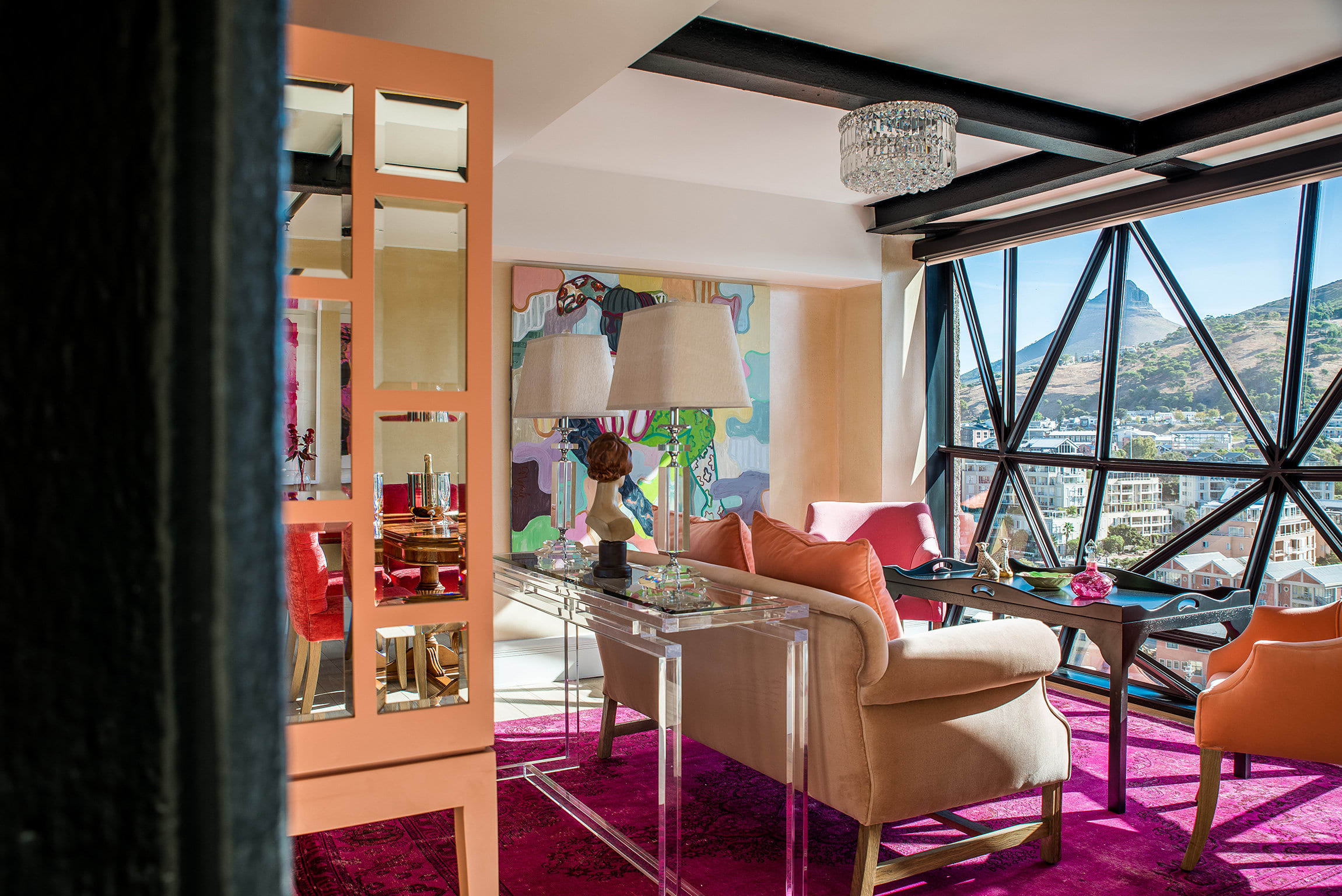
Image courtesy of The Silo Hotel
South Africa is a great place to experience your first safari. You won’t see enormous herds here, but you will get variety. (And you’ll see the famed Big Five: lions, leopards, rhinoceroses, elephants and African buffalos.)
But there’s so much more to the country than its safari-related offerings (although these are stellar). Cape Town, for instance, is just as worthy of exploration. Its gastronomic scene is exceptional, its cultural landscape varied and vibrant. The nearby Winelands produce some of the world’s best vintages, and a slate of wine estates, with their farm-to-table dining and robust wine lists, beckon. National parks and windswept coasts are also a must, and don’t overlook the country’s world-class marine activities — especially whale watching.
Needless to say, there’s something for everyone in this dynamic, worldly locale. Below is a mere taste of all South Africa offers. For a more tailored stay — and to narrow down your options — connect with Fora. We'll design an itinerary crafted to fit your budget, travel style and bucket-list musts.
Need to know:
Currency: South African Rand (ZAR, R)
Language: South Africa has 12 official languages: Zulu, English, Xhosa, Afrikaans, Pedi, Tswana, Ndebele, Tsonga, Venda, Swati, Sotho and sign language
Airport: Cape Town International Airport (CPT), O.R. Tambo International Airport (Johannesburg, JNB)
Transportation: Traveling while on safari involves scheduled charters. This is something we'll handle with our on-the-ground partners. For getting around Cape Town, renting a car or arranging private transfers (which we can help with) is the way to go.
Best time to visit: It depends on what you want to do. You can enjoy a South African safari year-round. Cape Town has its own Mediterranean-like microclimate, and can get windy in winter (its weather is similar to that of San Francisco). Spring (September to November) and fall (March to May) tend to bring the mildest weather. For whale watching, aim to go between June and December.
Ideal length of stay: a minimum of 10 days, ideally 14. Reserve six nights for safari, allotting two three-night stays at two different camps. (Having a few nights at each stop gives you a better opportunity to see everything, since nature is unpredictable, and to relax and enjoy the lodges.)
Signature dishes: biltong (cured dried meat), braai (South African barbeque), vetkoek (deep-fried dough served with sweet or savory toppings), chakalaka (bean-and-vegetable side dish), pap (polenta-like porridge)
Key Zulu phrases: sawubona (hello), ngicela (please), ngiyabonga (thank you)
Key Afrikaans phrases: hallo (hello), asseblief (please), dankie (thank you)
Dress code: safari chic — neutral colors and lots of layers (morning game drives can get chilly). Also throw in a fancier ensemble or two for elegant dinners and wine tastings.
Safari
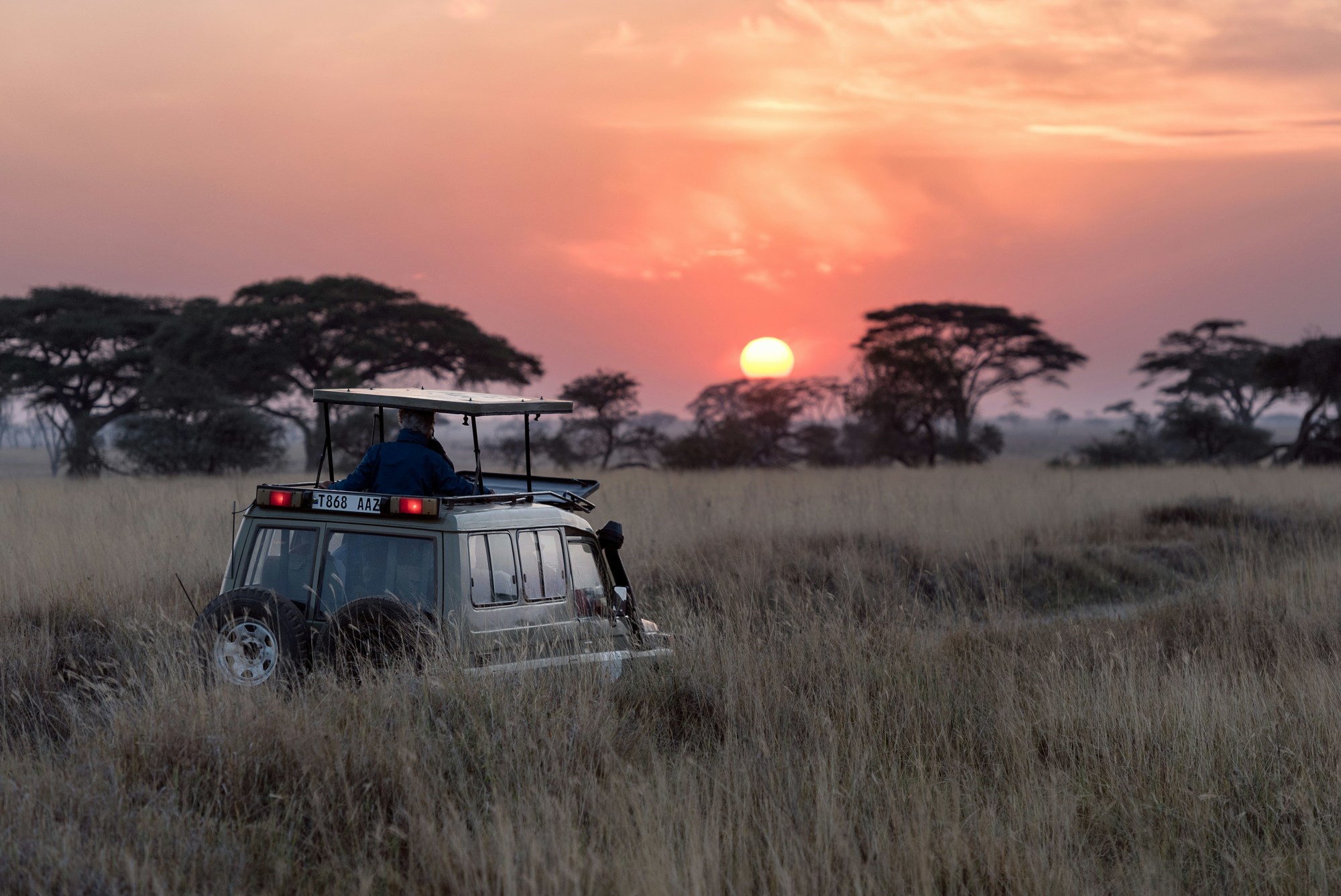
A trip to South Africa would not be complete without a safari. From Kruger National Park to Sabi Sands Game Reserve, the natural landscape is stunning, filled with diverse flora and fauna, including the Big Five.
Safaris tend to be all-inclusive, so your lodging and meals will be taken care of in the upfront price. Fora works with several excellent safari partners, all of which offer unique, memorable experiences. When you connect with Fora, we'll get a feel for your preferences and budget, and work with one of our trusted on-the-ground partners to curate the safari experience that best aligns with what you’re after.
Cape Town
The country’s legislative capital is brimming with culture, art and excellent gastronomy. It’s a vibrant, cosmopolitan locale near some of the world’s most breathtaking natural scenery.
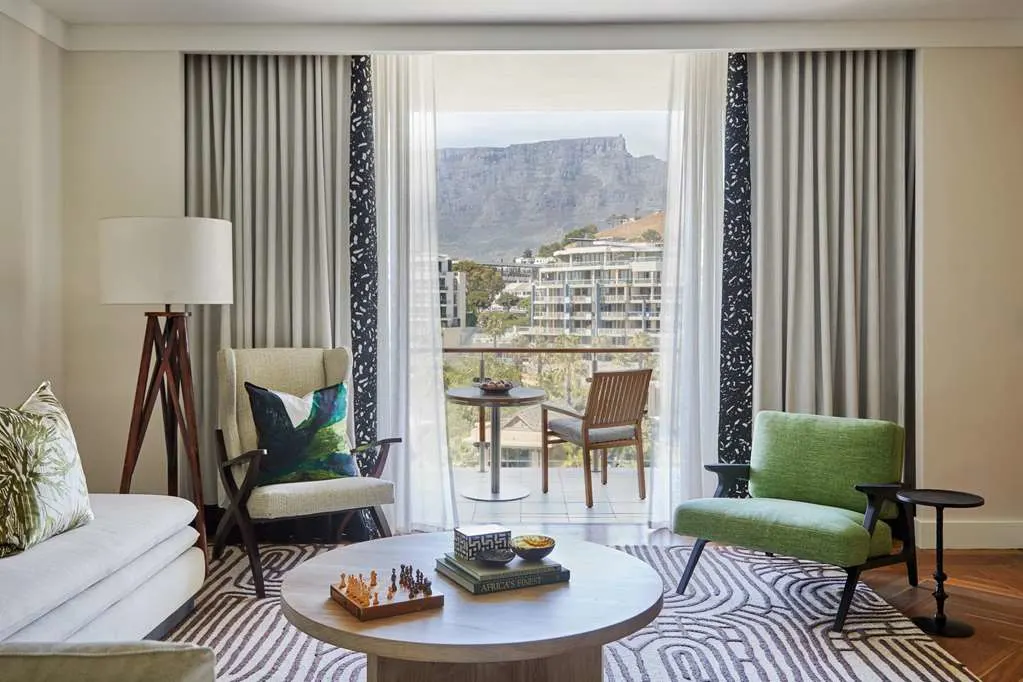
Image courtesy of One&Only Cape Town
Where to stay in Cape Town
One&Only Cape Town: Discreet, exclusive luxury with private waterways, a lagoon-style pool and unbeatable views of Table Mountain, framed by floor-to-ceiling windows. Fora’s VIP partner perks include $100 food / beverage credit, breakfast daily, an upgrade and extended check-in/out.
The Silo Hotel: A modern architectural delight housed in a former grain silo. Fora’s exclusive partner perks include $100 hotel credit (or a donation to the philanthropic conservation and sustainability projects of The Royal Portfolio Foundation), breakfast daily, an upgrade and extended check-in/out.
Cape Grace Hotel: A supremely located retreat on the V&A Waterfront, within walking distance of many of the city’s top attractions. Fora’s Accor Preferred by HERA partner perks include hotel credit, a welcome amenity, breakfast daily, an upgrade and extended check-in/out.
The 12 Apostles Hotel & Spa: A five-star boutique stay overlooking the ocean and Table Mountain National Park. Book with me to snag Fora Reserve perks including $100 hotel credit, a welcome amenity, breakfast daily, complimentary transfers to select sites, an upgrade and extended check-in/out.
Taj Cape Town: Refined and elegant, with an Indian flair. Fora’s partner perks include a complimentary lunch or dinner for two, breakfast daily, an upgrade and extended check-in/out.
Mount Nelson, A Belmond Hotel: Belmond’s timeless luxury and impeccable taste in the heart of Cape Town. Book with me to unlock Fora’s Belmond Bellini Club perks, including $90 hotel credit, welcome amenities and breakfast daily.
Ellerman House: A warm, 15-room stay filled with local art. Fora’s partner perks include complimentary roundtrip private airport transfers, a chocolate-and-South-African-brandy tasting, a spa treatment discount, breakfast daily, an upgrade and extended check-in/out.
What to do in Cape Town
Explore the world’s largest collection of contemporary African art at the Zeitz Museum of Contemporary Art Africa (Zeitz MOCAA). For additional African art you can take home, head to The Watershed, on the Victoria & Alfred Waterfront. The vibrant market hosts over 150 local African artisans selling their crafts. Also don’t miss the Iziko Slave Lodge, a museum housed in one of the city’s oldest buildings. Exhibitions center on the history of slavery in South Africa, human rights awareness and an array of artwork and artifacts ranging from Chinese ceramics to an Egyptology collection.
Cape Town is a city of suburbs, each of which has their own character. Take the Malay Quarter (also referred to as Bo-Kaap), for instance. Wander around the area’s pastel-hued houses and sample delicious food brimming with spices.
Don’t miss a day trip to Cape Town’s surrounding natural wonders. Marvel at panoramic views from atop Table Mountain; you can either hike or take the tram up (Table Mountain is also great for rock climbing). Within Table Mountain National Park, you’ll find Boulders Penguin Colony, in Simons Town. The colony is home to over 3,000 endangered African penguins. A little over 30 miles south of Cape Town is the Cape of Good Hope, a windswept locale with wild ostriches running about. The Cape is actually not Africa’s southernmost point; it’s famous for its unsavory weather and strong currents, which prohibited many ships from being able to travel east via this route.
To get up close with nature (that is, sharks), Cape Town is also a top destination for cage diving. Aim for June and July if you want to encounter great whites. Make sure to book with a company that prioritizes ethical shark diving. You’ll want to find one that doesn’t chum (feed/bait) sharks, and small group sizes are typically better as well.
Also consider taking a ferry to Robben Island (the ferry takes about three-and-a-half hours.) The island has a long and storied history. It served as a penal colony for both the British and Dutch. It later served as a leper colony and as a sort of asylum. In the 1960s, the island became a maximum-security prison; Nelson Mandela was one of its inmates. Robben Island was designated a national monument in 1996, and is today a UNESCO World Heritage Site.
Where to eat in Cape Town
Enjoy a well-sourced, elevated menu at the chic, art-filled eatery Hemelhuijs (don’t miss their all-day breakfast menu). The elegant, special-occasion La Colombe Restaurant (albeit a little outside of Cape Town, but consistently ranked as one of the world’s top restaurants) offers a multi-course culinary experience for both lunch and dinner. Thali, in Liam Tomlin’s multi-restaurant Chefs Warehouse, is the place to go for modern Indian. A vibrant, tastefully bold atmosphere and a locally sourced menu await at the Silo Hotel’s Granary Café. Allow the chefs to take you for a ride at the hip, 30-seat Belly of the Beast; there are no options or predetermined number of courses on their tasting menu (but everything is excellent). Try FYN for African-Japanese fusion in a sleek, charcoal-hued space; NOBU, in the city’s One&Only hotel, for additional Japanese; and Kloof Street House for thoughtfully sourced brasserie fare in a moody, cozy Victorian mansion.
Cape Winelands
South Africa has a serious wine game. The Cape Winelands host several charming towns — Franschhoek, Stellenbosch, Paarl, Constantia. It’s best to choose just one to explore. Regardless, expect beautiful scenery, gourmet dining, vineyards, art galleries and ample nature-based activities.
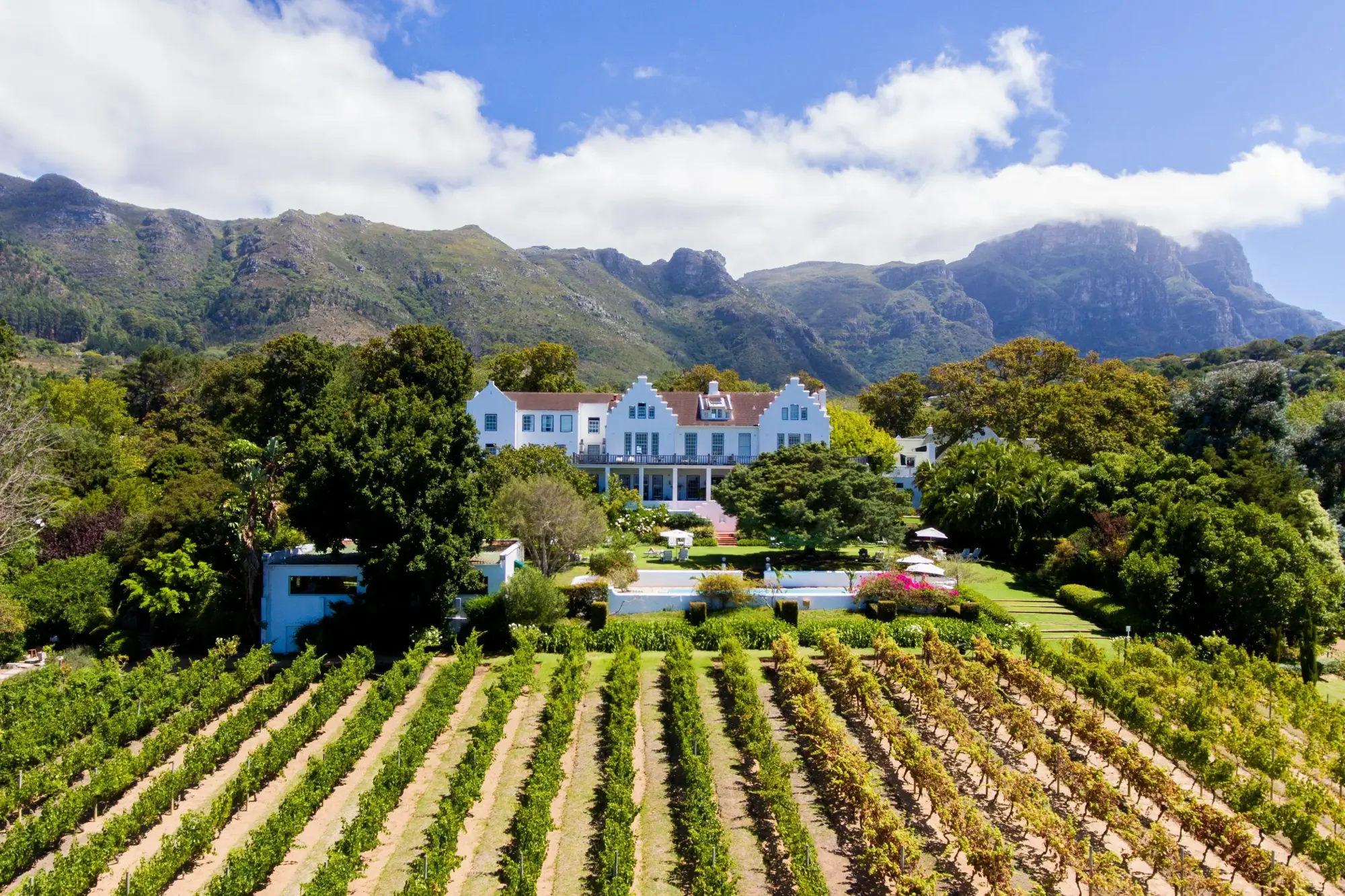
Image courtesy of The Cellars-Hohenort
What to do in the Cape Winelands
Explore the local shops and boutiques — especially in Franschhoek and Stellenbosch. Gallery hop, hike, try a hot-air balloon ride. Make sure you reserve ample time for eating and drinking, of course.
Where to eat in the Cape Winelands
Babylonstoren, a luxe boutique hotel and spa in Franschhoek, is a place you won’t want to leave. The sprawling property has its own farm, garden and dining options (refined picnics, rustic Italian fare, farmhouse-chic meals). Everything is farm-to-fork, of course. It’s a foodie’s paradise. Savor a seasonal, beautifully plated menu at Delaire Graff Estate Restaurant, and meticulously sourced, sustainably minded delights at the ever-chic Maison, part of the Chef’s Warehouse group. Try a locally and ethically sourced breakfast or lunch at the countryside-chic La Cotte restaurant. The stylishly minimalist La Petite Colombe is a must for foodies, and the cool, casual Werf Restaurant, with sweeping valley views, serves additional farm-to-table nourishment.
Where to stay in the Cape Winelands
The Cellars-Hohenort: A sophisticated 51-room estate amid gardens and vineyards. Fora’s SLH withIN partner perks include $50 hotel credit, breakfast daily, an upgrade and extended check-in/out.
La Residence: A serene, 30-acre Franschhoek retreat amid vineyards. Fora Perks include $100 food / beverage or spa credit, breakfast daily, an upgrade and extended check-in/out.
Delaire Graff Lodges & Spa: Modern, well-designed luxury with a keen eye for art and architecture.
Bonus: Marine-based activities
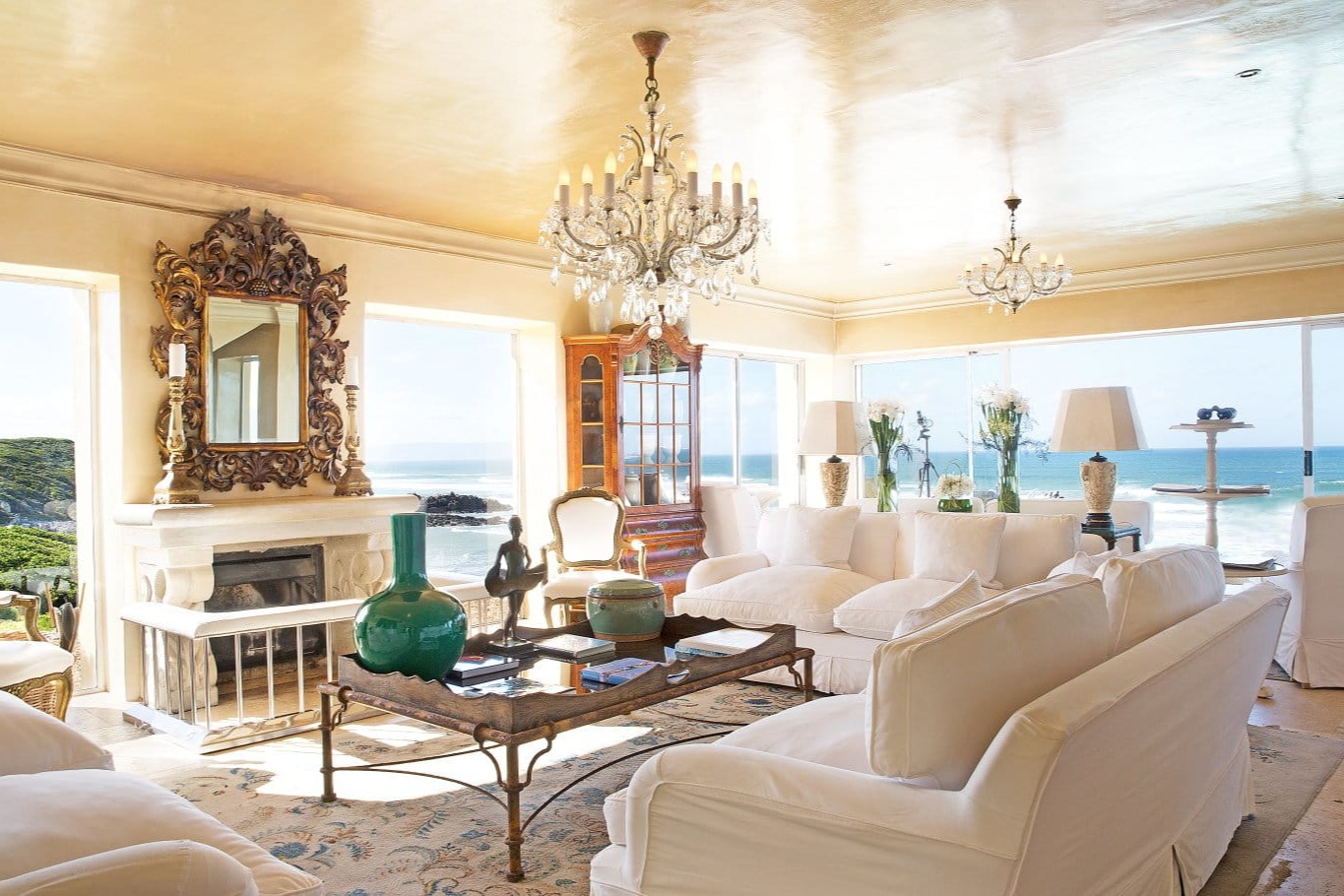
Image courtesy of Birkenhead House
Although South Africa is great for safaris, urban exploration and countryside luxury, consider getting off-the-beaten-track and exploring the country’s water-based offerings. The seaside town of Hermanus is prime whale-watching territory. Stay at the sophisticated, elegant Birkenhead House for a relaxing spot from which to enjoy the area’s natural splendor. The Marine, another cliff-top hotel overlooking Walker Bay, is an additional refined option.
For something a little more on the active and adventurous side of the spectrum, head to Grootbos Private Nature Reserve. The five-star, sustainably minded hotel consists of luxe lodges and villas, all of which were designed to complement their stunning natural environs. Think of Grootbos as a marine safari lodge. (Their marine safari experience involves close encounters with whales, sharks, dolphins, seals and penguins.) Cage diving is big here, too. But if you’d prefer to stay on land, not to worry: there’s horseback riding, birdwatching, botanical tours and more.
Ready to travel? Connect with Fora to plan and book your dream South Africa getaway.
